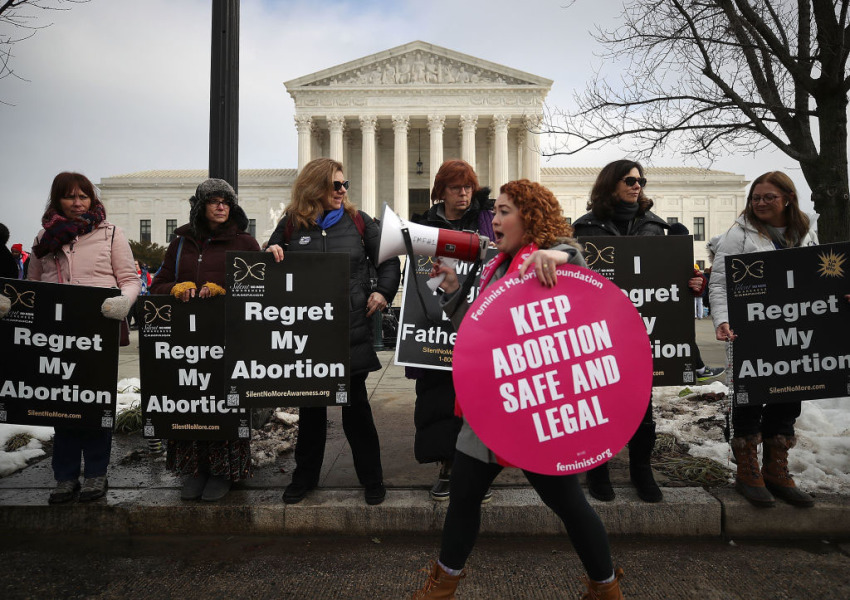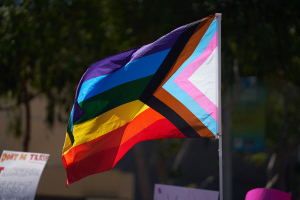Supreme Court to determine if states can ban abortions before viability; pro-lifers hail ‘landmark opportunity’

The United States Supreme Court has agreed to hear arguments in the case of a Mississippi law banning abortion in most circumstances before an unborn baby is viable. One pro-life group has hailed the court's decision to hear the case as a "landmark opportunity."
In an order released Monday morning, the Supreme Court granted certiorari, or agreed to review a lower court decision, in the case of Thomas Dobbs, et. al. v. Jackson Women’s Health Organization.
The case centers on a Mississippi law passed in 2018 that banned most abortions after 15 weeks gestation or several weeks before a baby can survive outside the womb.
The Supreme Court explained in their brief order that the arguments will focus on the question of the litigation of whether bans on pre-viability abortions are constitutional.
In March 2018, Mississippi Gov. Phil Bryant signed House Bill 1510 into law, which changed state law from banning most abortions after 20 weeks' gestation to 15 weeks' gestation.
Any doctor who performed an abortion after 15 weeks for reasons other than severe fetal deformity or to save the life of the mother in a medical emergency could face up to 10 years in prison.
"These human beings in the womb deserve the right to life, which is supported by this law," the Jackson-based organization Pro-Life Mississippi said back in 2018. "We appreciate Governor Bryant and our legislators who have supported bills like this one that are grounded in science and protect human life."
Soon after HB 1510 was signed, Mississippi’s lone abortion clinic, the Jackson Women's Health Organization, filed a lawsuit against the state over the new law.
Nancy Northup, head of the Center for Reproductive Rights, a pro-abortion group that represented the clinic, expressed confidence that the legislation would be declared unconstitutional.
"Mississippi politicians have shown once again that they will stop at nothing to deny women this fundamental right, targeting the state's last remaining clinic in defiance of the U.S. Supreme Court and decades of settled precedent," Northup said at the time.
"Politicians are not above the rule of law, and we are confident this dangerous bill will be struck down like every similar attempt before it."
In December 2019, a three-judge panel of the U.S. Court of Appeals for the Fifth Circuit ruled against the law, unanimously upholding a lower court decision.
Circuit Judge Patrick Higginbotham, author of the panel's opinion, argued that the abortion law ran contrary to “a woman’s right to choose an abortion before viability.”
“States may regulate abortion procedures prior to viability so long as they do not impose an undue burden on the woman’s right, but they may not ban abortions,” wrote Higginbotham. “The law at issue is a ban. Thus, we affirm the district court’s invalidation of the law, as well as its discovery rulings and its award of permanent injunctive relief.”
The pro-life group Susan B. Anthony List hailed the Supreme Court's decision to review the case as a "landmark opportunity."
Marjorie Dannenfelser, president of the SBA List, said in a statement to The Christian Post: “This is a landmark opportunity for the Supreme Court to recognize the right of states to protect unborn children from the horrors of painful late-term abortions.Across the nation, state lawmakers acting on the will of the people have introduced 536 pro-life bills aimed at humanizing our laws and challenging the radical status quo imposed by Roe. It is time for the Supreme Court to catch up to scientific reality and the resulting consensus of the American people as expressed in elections and policy.”
Jeanne Mancini, president of March for Life, noted in a statement shared with CP: "March for Life works for the day when abortion is unthinkable, but currently the United States is one of only seven countries — including China and North Korea — that allows abortions through all nine months of pregnancy. An overwhelming majority of Americans agree that this goes way too far, in fact 70% think abortion should be limited to — at most — the first three months of pregnancy.
"States should be allowed to craft laws that are in line with both public opinion on this issue as well as basic human compassion, instead of the extreme policy that Roe imposed," Mancini added.



























